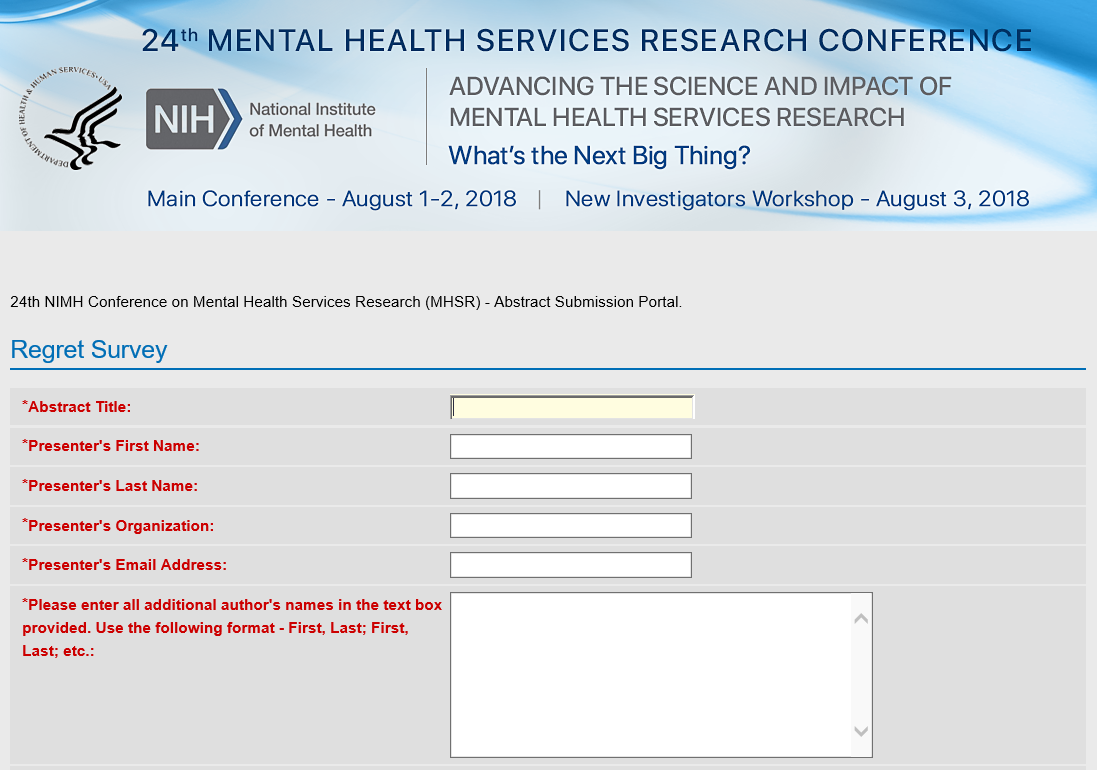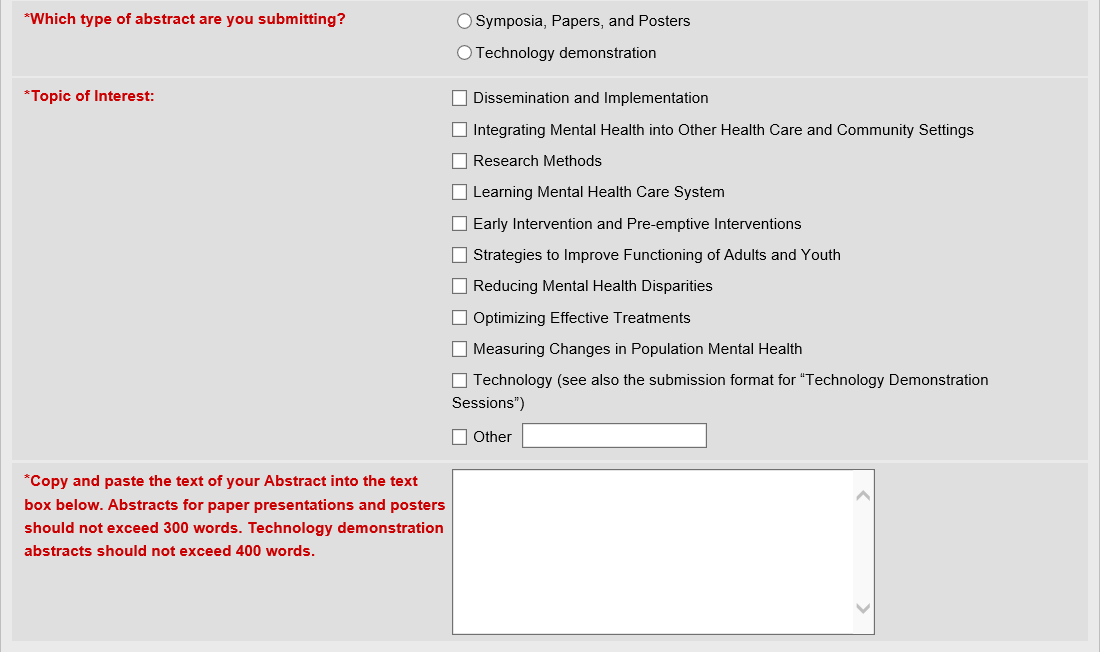Form 1 MHSR Abstract Submission form
Conference, Meeting, Workshop, and Poster Session Registration Generic Clearance (OD)
MHSR Abstract Submission Instructions and Form
NIMH Mental Health Services Research Conference Registration
OMB: 0925-0740
OMB # 0925-0740
Expiration Date: 05/2019
Public reporting burden for this collection of information is estimated to average 5 minutes per response, including the time for reviewing instructions, searching existing data sources, gathering and maintaining the data needed, and completing and reviewing the collection of information. An agency may not conduct or sponsor, and a person is not required to respond to, a collection of information unless it displays a currently valid OMB control number. Send comments regarding this burden estimate or any other aspect of this collection of information, including suggestions for reducing this burden, to: NIH, Project Clearance Branch, 6705 Rockledge Drive, MSC 7974, Bethesda, MD 20892-7974, ATTN: PRA (0925-0740). Do not return the completed form to this address.
MHSR Abstract Submission Instructions
All
abstracts must be submitted here.
The
deadline for submission is (Insert Submission Deadline here) at noon
Eastern Time.
Guidelines for abstract preparation are provided below. Please read
carefully prior to submission. You will receive e-mail confirmation
after your submission is received. First authors will be notified of
acceptance around (First Notification Date Here).
Authors
must indicate session type (symposium, paper presentation, poster
presentation, or technology demonstration) at the time of submission.
We will automatically consider for poster presentations those
abstracts that are submitted but not accepted for paper
presentations.
Only completed abstracts will be
considered for presentation. To be considered complete, abstracts for
symposia,
paper presentations, or
poster presentations
must describe one or more scientific study that will have produced
results by the time of presentation at MHSR (YEAR), including
descriptions of methods, results (they may be preliminary results),
conclusions, and implications for improving practice. Abstracts
describing research that is in progress and will
not have final data analyses and findings by the time of the MHSR
(YEAR) conference will not be accepted.
Completed abstracts for technology
demonstrations
should describe the innovation to be presented, as well as details of
how the demonstration will be conducted.
In order to
encourage broad and timely dissemination of research results and
innovative services, abstracts presented elsewhere are acceptable for
submission and presentation at the MHSR (YEAR) Conference provided
that a manuscript reporting the same or similar results has not been
accepted for publication.
Abstracts for paper
presentations and posters
should not exceed 300 words. Symposium
abstracts should include an overview (250 words maximum) and
description of each individual presentation (not to exceed 150 words
each). Technology
demonstration
abstracts should not exceed 400 words. Submissions should include the
applicable sections described below.
Symposia,
Papers, and Posters
– These abstracts must contain the following sections:
Presenter (individual paper and poster presentations); Chair, Discussant and Panelists (symposia)
Objective – describes the research objective
Method – summarizes the research methods used to accomplish the research
Findings – summarizes findings that are supported by the data
Impact - states the conclusions drawn from results, including the potential for the research findings to improve practice
Funding – acknowledges the primary source of funding, including government, industry, foundation or academic institutional support
Submit your abstract here!
Review Criteria:
Abstracts
will be ranked according to their significance to the field of mental
health services research, approach, innovation, findings (symposia,
paper, poster) or impact (technology demonstration), and relevance to
the focus of MHSR (YEAR) on harnessing science to strengthen the
public health Impact of mental health services research.
If
you have questions, please contact Janet Sorrells, at
[email protected].



| File Type | application/vnd.openxmlformats-officedocument.wordprocessingml.document |
| Author | Juliano-Bult, Denise (NIH/NIMH) [E] |
| File Modified | 0000-00-00 |
| File Created | 2021-01-21 |
© 2026 OMB.report | Privacy Policy